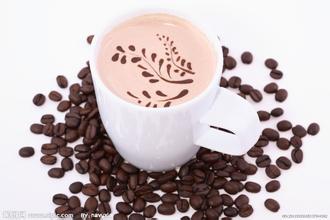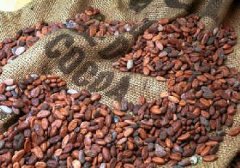Advantages and disadvantages of drinking coffee Coffee is good for the skin

The benefits of drinking coffee:
1. Coffee contains certain nutrients the nicotinic acid of coffee contains vitamin B, and the content of roasted coffee beans is higher. And there are free fatty acids, caffeine, tannic acid and so on.
two。 Coffee is good for the skin. Coffee can promote metabolic function, activate digestive organs, and has a great effect on constipation. Taking a bath with coffee powder is a kind of thermotherapy, which has the effect of losing weight.
3. Coffee can eliminate fatigue in order to eliminate fatigue, we must supplement nutrition, rest and sleep, and promote metabolic functions, while coffee has these functions.
4. Three cups of coffee a day can prevent gallstones. Caffeinated coffee stimulates gallbladder contraction and reduces cholesterol, which can easily form gallstones. The latest Harvard University researchers found that men who drink two to three cups of coffee a day have less than 40% chance of getting gallstones.
5. Drinking coffee often can prevent radiation injury, especially the radiation of electrical appliances has become a more prominent kind of pollution. Indian Barba atomic researchers have come to this conclusion in mouse experiments and say it can be applied to humans.
6. The health care and medical function of coffee coffee has the functions of anti-oxidation and heart protection, strengthening muscles and bones, benefiting waist and knees, appetizing and promoting food, eliminating fat and accumulation, promoting orifice and dehumidification, promoting blood circulation and removing stasis, relieving wind and relieving spasm and so on.
7. Experiments on the effect of coffee on mood show that the average person absorbs 300 mg (about 3 cups of brewed coffee) a day, which has a good effect on a person's alertness and mood.
The disadvantages of drinking coffee:
1. Confusing caffeine in times of stress helps to improve alertness, agility, memory and concentration. But drinking more coffee than you are used to will produce the same dose of stimulants that you are used to, which can cause nervousness. For people with anxiety disorders, caffeine can worsen symptoms such as sweaty palms, palpitations and tinnitus.
two。 Aggravate high blood pressure caffeine is often combined with other simple painkillers because of its analgesic effect, but if you take it in large quantities for a long time, if you already have high blood pressure, using a lot of caffeine will only make your situation worse. Because caffeine alone can raise blood pressure, coupled with emotional stress, it can have a dangerous multiplication effect, so people at risk of high blood pressure should especially avoid drinking caffeinated drinks during stressful times at work. Some people who drink coffee all the year round think they are immune to the effects of caffeine, but this is not the case. One study shows that blood pressure can rise for up to 12 hours after drinking a cup of coffee.
3. Induced osteoporosis caffeine itself has a good diuretic effect. If you drink a lot of coffee for a long time, it is easy to cause bone loss, which will adversely affect the preservation of bone mass. For women, it may increase the threat of osteoporosis. But the premise is that people who don't get enough calcium in normal food, or people who don't move very often, plus women after menopause, calcium loss caused by lack of estrogen, coupled with a large amount of caffeine, may pose a threat to bones. If you can enjoy it in a reasonable amount, you can still stop eating for fear of choking.
In addition, the following six types of people are not suitable for drinking coffee:
Suffering from high blood pressure, coronary heart disease, arteriosclerosis and other diseases-long-term or heavy consumption of coffee can cause cardiovascular disease.
Older women-Coffee reduces calcium and causes osteoporosis. After menopause, women need to add ten times the amount of calcium every day.
People with stomach problems-drinking too much coffee can worsen stomach problems.
Pregnant women-drinking too much coffee can lead to fetal malformation or miscarriage.
People with vitamin B1 deficiency-vitamin B1 can maintain the balance and stability of the nervous system, and coffee has a destructive effect on it.
Important Notice :
前街咖啡 FrontStreet Coffee has moved to new addredd:
FrontStreet Coffee Address: 315,Donghua East Road,GuangZhou
Tel:020 38364473
- Prev

Drink more coffee and beware of allergic dermatitis
Although human beings have studied allergic dermatitis for many years, there are still many problems that have not been fully clarified. According to one study, about 44% of adults with allergic dermatitis often have recurrent attacks from time to time. People have known for a long time that food is related to allergic dermatitis, and many foods are the cause of occurrence and recurrence of allergic dermatitis. But recent studies have found that no matter what the cause of the allergy
- Next

The antihypertensive effect of coffee is better than that of green tea.
Some people think that tea has a blood pressure-lowering effect, but foods rich in cocoa powder may actually help more, according to German researchers. Foods rich in cocoa seem to help lower blood pressure, but green and black teas may not, according to the Archives of Internal Medicine of the American Medical Association. The researchers divided the hypertension volunteers into two groups. One group took the control on time according to the doctor's advice.
Related
- Beginners will see the "Coffee pull flower" guide!
- What is the difference between ice blog purified milk and ordinary milk coffee?
- Why is the Philippines the largest producer of crops in Liberia?
- For coffee extraction, should the fine powder be retained?
- How does extracted espresso fill pressed powder? How much strength does it take to press the powder?
- How to make jasmine cold extract coffee? Is the jasmine + latte good?
- Will this little toy really make the coffee taste better? How does Lily Drip affect coffee extraction?
- Will the action of slapping the filter cup also affect coffee extraction?
- What's the difference between powder-to-water ratio and powder-to-liquid ratio?
- What is the Ethiopian local species? What does it have to do with Heirloom native species?

